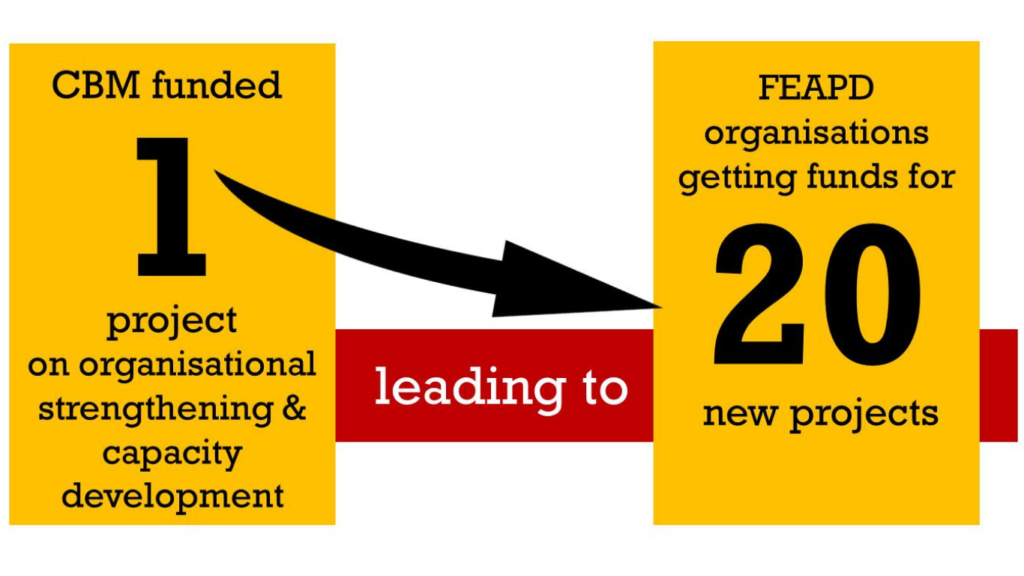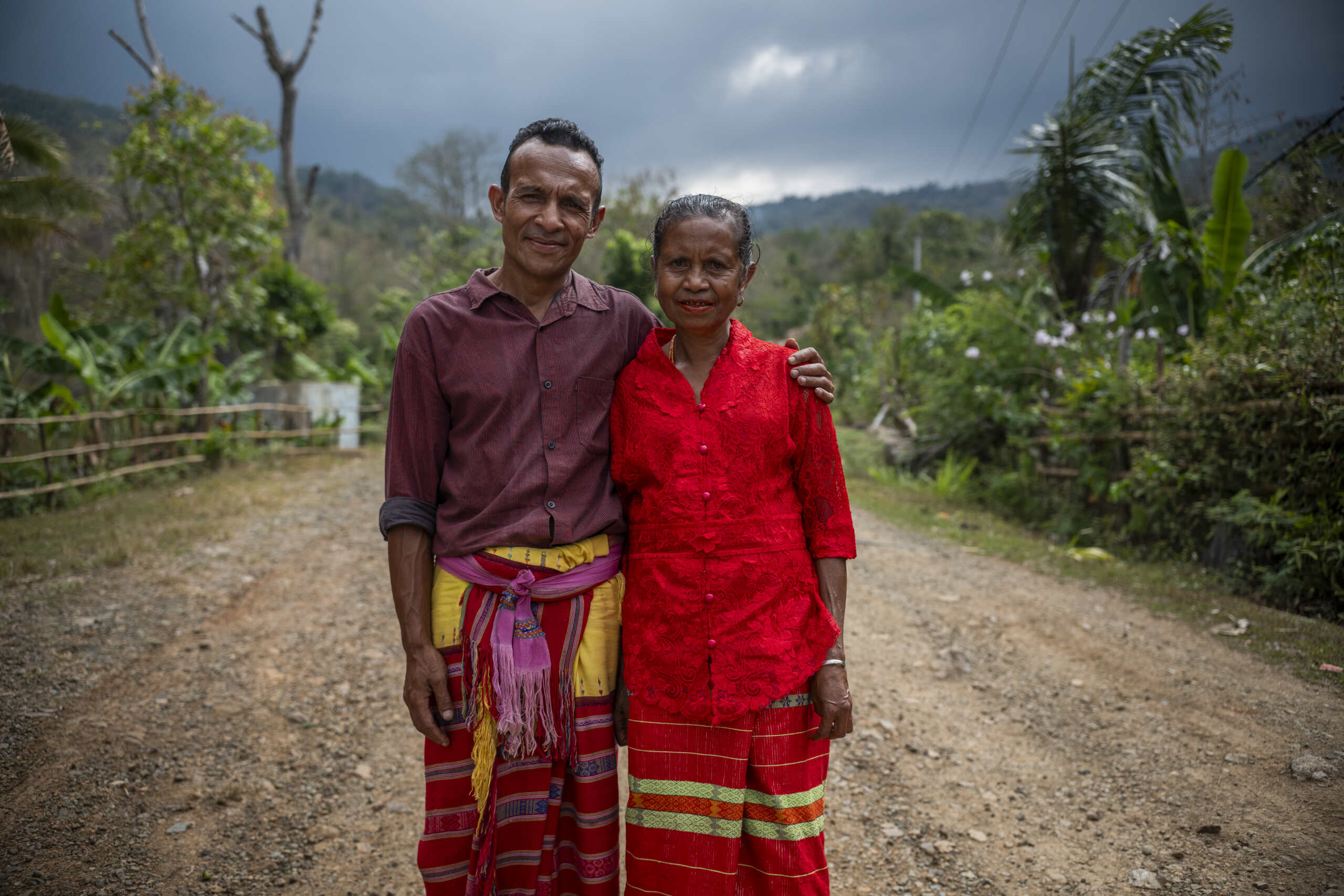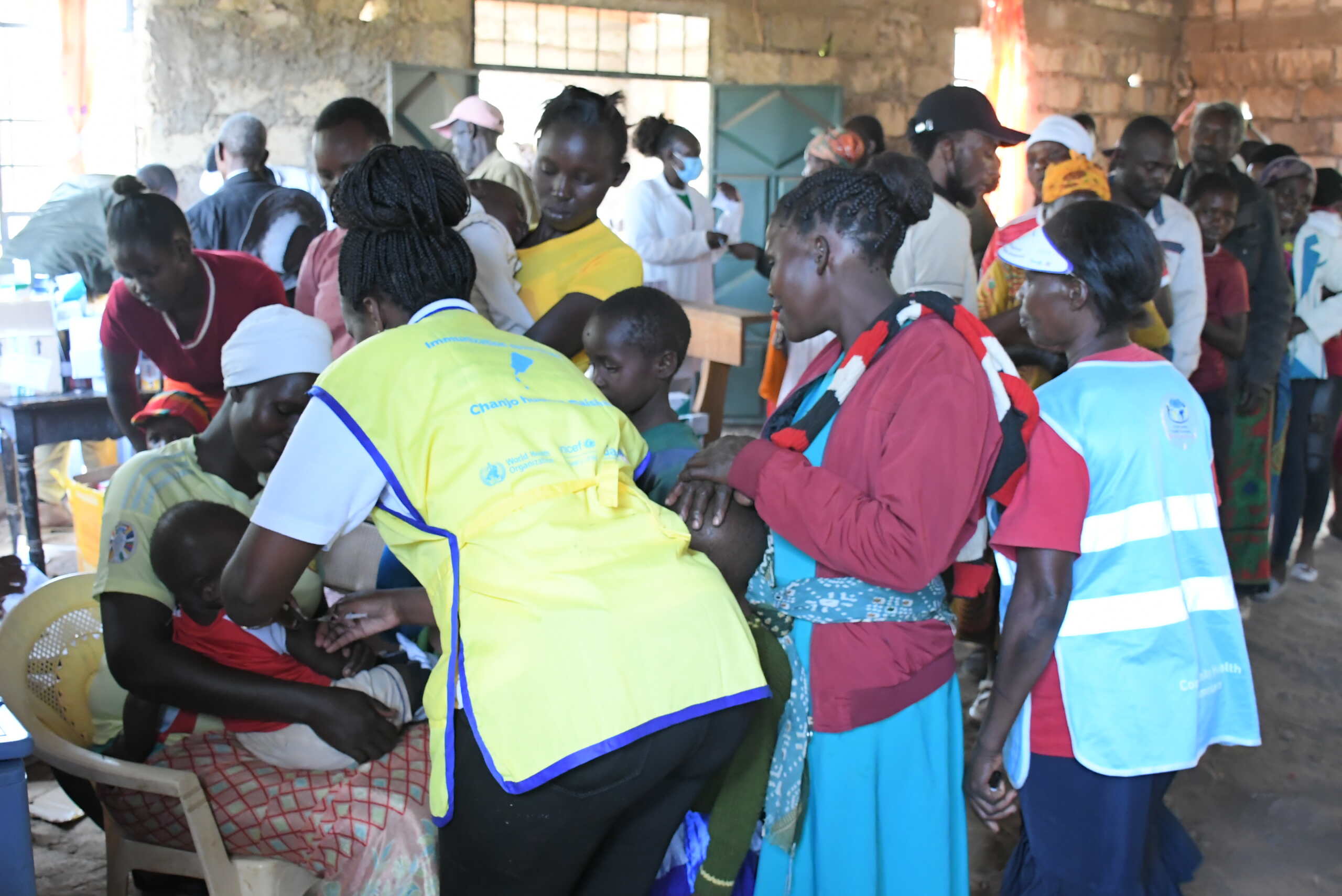Strengthening OPDs in Ethiopia increases impact and value for money
Stories | January 23, 2024
Across Ethiopia, around 7.8 million people live with some form of disability – that’s 9.3 per cent of the country’s total population.
In 2019, CBM Australia partnered with the Federation of Ethiopian Associations of Persons with Disabilities (FEAPD) to address disability in Ethiopia and to fund organisational strengthening. The aim of the project was to cement organisational sustainability by strengthening staffing, systems and processes to enable capacity to access other revenue streams and ensure FEAPD’s ongoing viability as the voice of the disability movement in Ethiopia.
Similar to other locally based non-governmental organisations (NGOs), Organisations of Persons with Disabilities (OPDs) are highly sought-after development and humanitarian partners for larger international NGOs and donors due to their contextual expertise, skills and local networks. Partnerships and funding between OPDs and NGOs are formalised through projects that usually run for three to five years, with agreed outcomes, supported by carefully designed activities for which a percentage of necessary staffing costs and overheads are budgeted by the donor.
However, as a result of tied project funding, OPDs often become hamstrung in their ability to strategically act, grow and sustainably function.
They do not have un-tied resources, including money or staff time, to pursue activities outside of those specifically funded – activities that often look outwards towards the community, rather than inward to ensure the sustainability the OPD itself. Staffing is short-term and ongoing overheads, such a rent, can be uncertain as they are tied to project implementation periods. Donors require strong systems and accountability to guarantee against misuse of funds, yet do not consider the resources these require long before a project idea is formed or after one is successfully closed out. As a result, OPDs are often constrained by the priorities of donors or risk their very ability to exist.
FEAPD faced this very challenge and, in partnership with CBM Australia, designed a project specifically to support the development of organisational systems and structures to ensure not only their longevity, but their ability to autonomously and strategically direct the organisation to best represent the wants and needs of the disability movement in Ethiopia. The partnership has supported activities such as an organisational review and restructure, development of standard operating systems and procedures, and the recruitment and ongoing full salary of key staff to seek other grants.
A mid-term review demonstrated the incredible value for money that supporting the unseen, and often unpopular administrative costs of an organisation can have.
For every $1 provided by CBM, FEAPD generated approximately a staggering $14.
As a result of the partnership, FEAPD accessed nearly $5 million worth of multi-year funding grants running until 2023.

According to Semret Zenebe, FEAPD Project Coordinator, “… this is the result of the CBM project. Remember, we did not have any projects previously. We had only [the] CBM project. Now we have more than 20 projects that have a huge amount of budget. I was the only coordinator for FEAPD when I was recruited. [Now] we have more than 18 national coordinators and officers. This is the result of this [CBM] project. This is why I am saying about the impact of the project.”
By committing to the funding of staff – not to oversee a complex web of activities, but to support the organisation’s everyday functioning – FEAPD was able to apply directly for grants and ensure they could develop their systems and processes to meet the requirements of international donors, such as USAID, UN agencies and international NGOs. In addition, it also allowed FEAPD to build the systems and confidence of the FEAPD’s members, furthering the rights of people with disabilities in Ethiopia.
“When we capacitated the OPDs, they cascade the structure to individuals with disabilities,” said Semret.
A representative of one of the member OPDs reflected during the review that for the commitment of one position, they have now been able to grow to 17 staff and can ensure the organisation’s ongoing sustainability.
“That is the basic point for us. This is a huge achievement as FEAPD – the human resources,” said Semret.
As a result of the funding, FEAPD restructured and grew its network, from a membership of six national associations of people with disabilities to 21 member organisations representing the multi-faceted nature of disability movement in Ethiopia.
While the direct beneficiaries of this project may be smaller in number as the member OPDs of the Federation are counted, looking to the long-term future and the impact the Federation will have as a strong and stable voice on the rights of and issues faced by people with disabilities, those who indirectly benefit for many years to come is immeasurable.
“CBM is our backbone. We are always grateful about CBM. They support us technically, not only financially. Their door is always open for us,” said Semret.
Find out more about how CBM worked with and supported OPDs in Ethiopia
Listen to the CBM Australia team’s recent interview with Semret (Project Coordinator at FEAPD) and Tigist to hear more about the project’s approach and impact.
https://www.cbm.org.au/stories/strengthening-opds-in-ethiopia-increases-impact-and-value-for-money
Related Stories

How CBM is making a difference in Indonesia
For more than 45 years, CBM Global has been working alongside communities in Indonesia to ensure people with disabilities...

Coordinating inclusive health outreach in Meru County
For many households in Meru’s rural and remote areas, basic health services are physically...

Share your advocacy preferences with us
Thank you for helping us to advocate for the one billion people with disability globally. CBM Australia advocate across...
